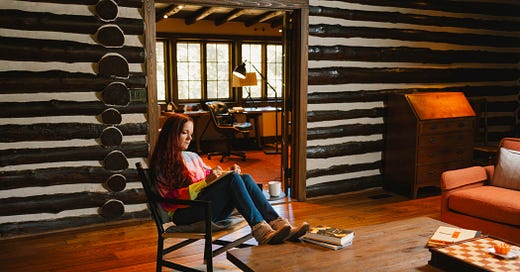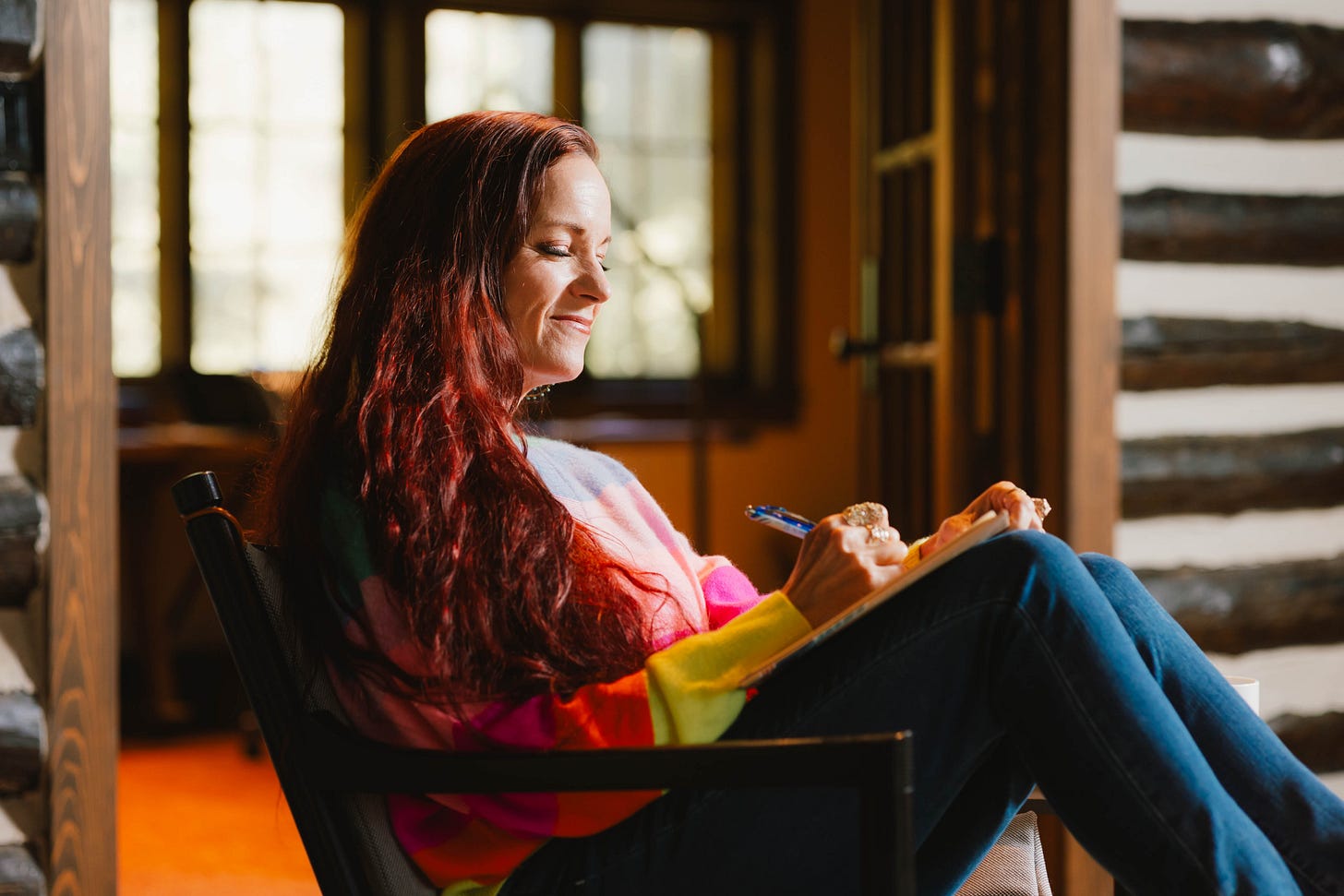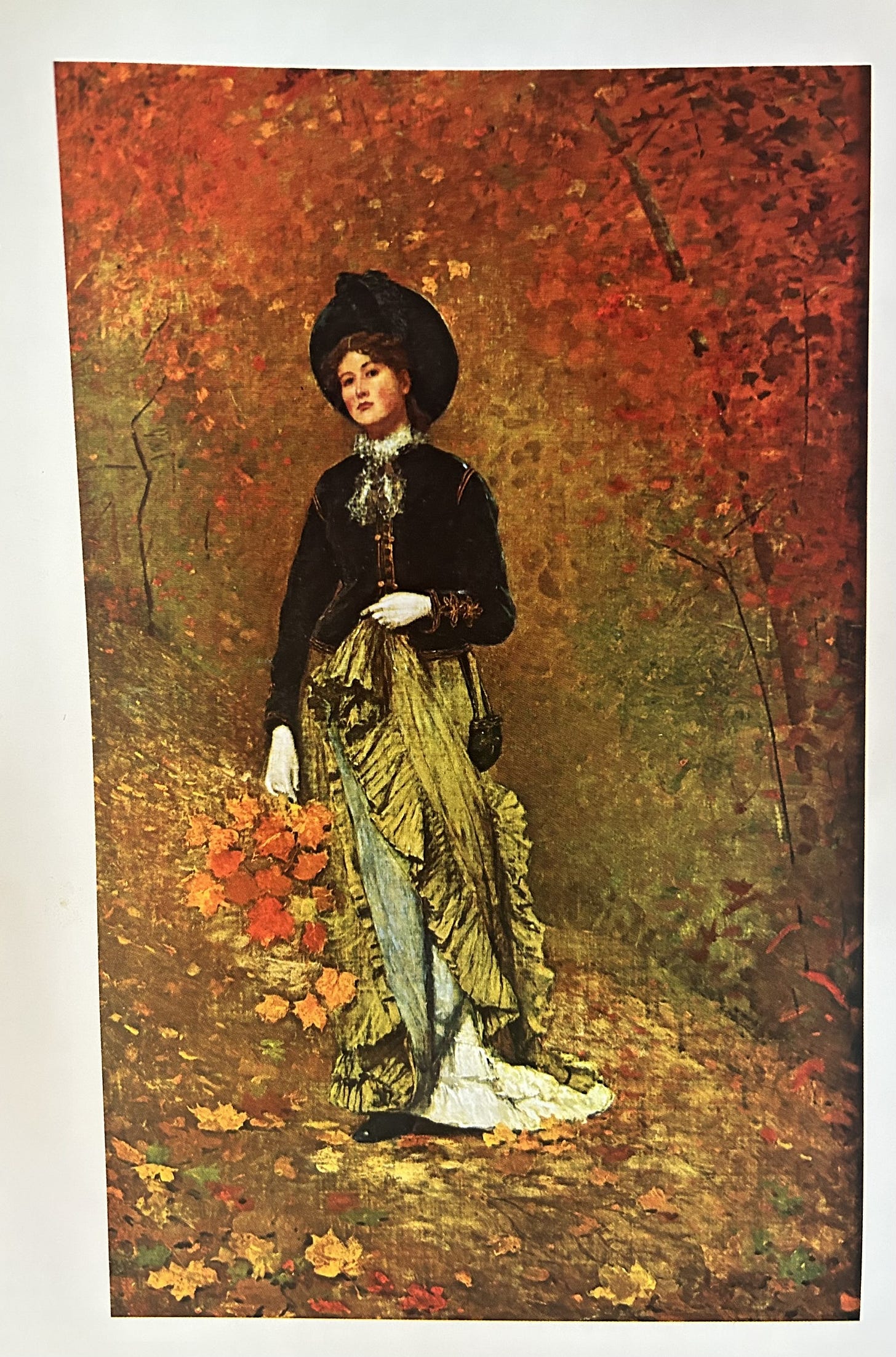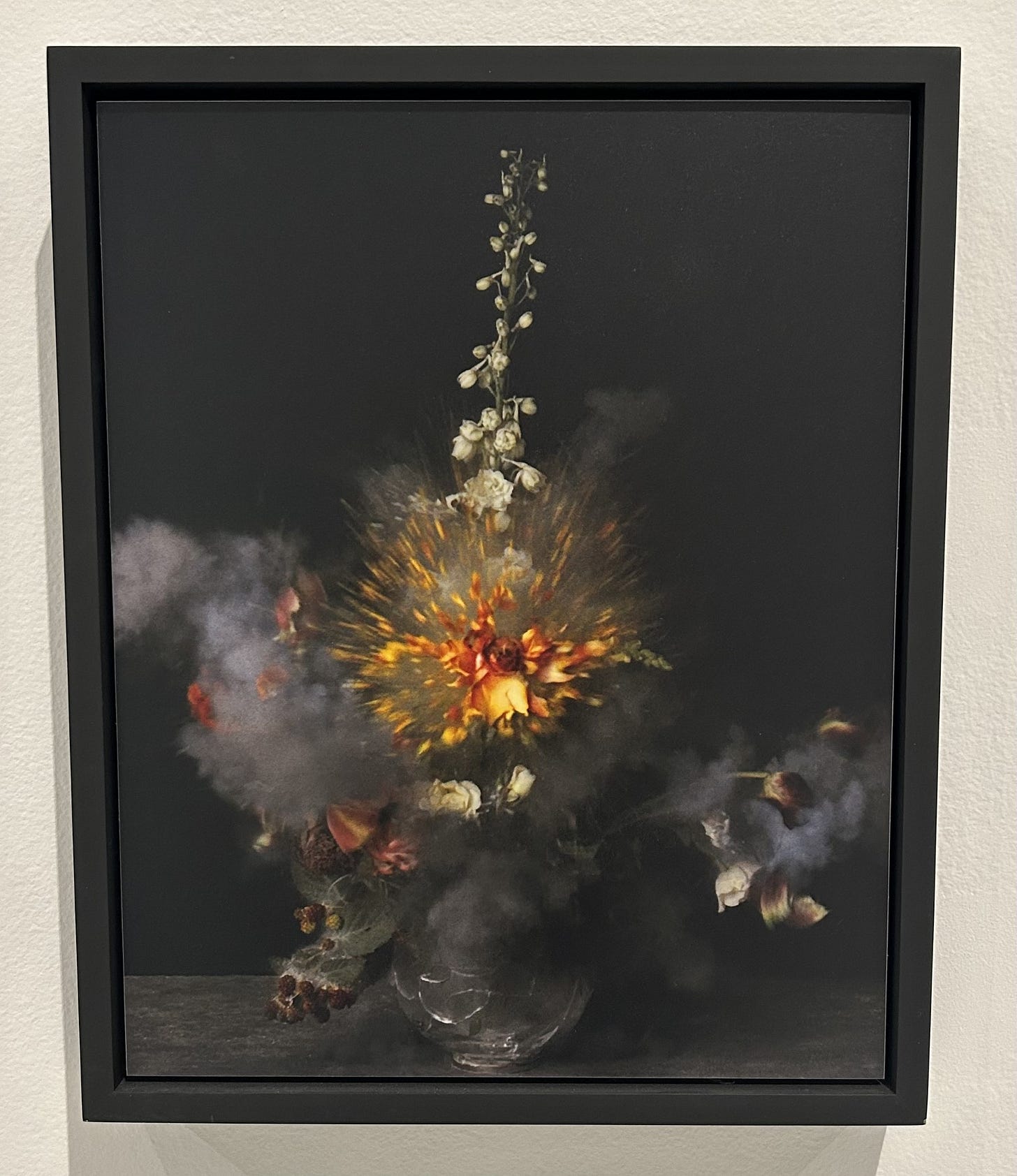Paradise: AKA a Writing Residency
I’m writing this from a cozy refurbished cabin in Knoxville, at a new writers retreat called Loghaven. Originally this place was built in the 1930s for cabin rentals, and for decades the cabins were used and loved, and Knoxville grew up around them. The cabins fell into disrepair and a developer bought Loghaven, 70 acres, to knock down the cabins and build condos (that old story) but so many people had happy memories in these cabins that they protested the plan. Finally the Aslan Foundation stepped in and bought the whole ridgeline, and then they set about fixing the cabins! Loghaven Residency is new but amazing—five different artists here in different genres. They provide weekday meals, and on weekends they bring groceries to us that we’ve ordered online. And that’s not all: they are giving us a weekly stipend. Those of you who aren’t in the writing world might not know how residencies work—normally the artist pays to go to such a retreat. The best ones, very competive ones, let you go for free. That’s great but that still means the artist has to be able to afford to take time off work, travel to the residency, etc. The residency takes care of all that—because you shouldn’t need to be wealthy to be an artitst. Art is for everyone. It’s such a gorgeous philosophy.
These photos were taken by the nice Loghaven photographer (Sean Poynter) who came around to everyone’s studios. They always try to get action shots, which is a lot more interesting when the artist in residence is a dancer or painter. When the artist is a writer, they always say “I’ll just take photos while you write a poem.” As if ANYONE coud write a poem while remembering to look poetic and suck in their stomach. In place of writing a “real” poem, I started writing a dirty limerick and this shot is completely unusuable but captures me getting a kick out of naughty brain.
Knoxville is full of trails—honestly, this city makes it so easy to get outside, with urban wilderness trails connecting and connecting—I wish all cities could study this model. And the leaves are about reaching their peaks! I spend a lot of time walking in the woods, looking pretty much like this:
Ok, not really, but our cabin are also stocked with these wonderful art books, and this is a Winslow Homer painting from one of them. (“Autumn,” 1877).
Paradise—Until the World Gets in the Way
One of the reasons it feel so magical to be taken care of in this way is because I’m doing so much care work at home with my mom, whose Alzheimer’s is progressing. But at the same time, I’m doing some reflecting on what it means to feel so gorgeously taken care of when the world is so violent right now. My friend, the poet Marcela Sulak, who was my host when I read in Tel Aviv last year, spend much of today in a stairwell in her building avoiding the air strikes. The contrast is too vivid. Visiting the Knoxville Museum of Art, I came across this artwork, newly relevant in a terrible way:
A photo by Ori Gersht, from the series “Time After Time: Exploding Flowers.” Gersht is playing in the tradition of European still life art, made sinister by “his fear-filled childhood in Israel.” He soaks flowers in liquid nitrogen and photographs them as they explode.
Another writer I met in Israel, Vivian Cohen, has started a substack called The Little Things: Notes onf Daily Life During a War.
No recipe in this edition of The BethAnnigan
Didn’t I tell you they feed us here? I haven’t been cooking in weeks. (I am using the time to plan enormous holiday feasts, however, and haunt the NYT recipe datebase). Also, I’ve gone feral and I’m spending pretty much all my time in pajamas. So in place of a recipe, I’m going to recommend my favorite prand of pajamas, which I love because 1. Their founder is a Notre Dame grad (my alma mater) and former CIA operative 2. the cotton is so soft, 3. they have POCKETS! Petit Plume.
Do you know what else has pockets? Sea otters. Yes, that’s right—sea otters, one of my top favorite animals, have a pocket under each arm to store tools and leftovers. I love leftovers. I’m never happier than when leaving a restaurant with a tinfoil swan under my arm. Surely Yako in this Shedd Aquarium video is my spirit animal, or one of them. . .
Check out Yaku storing clams in his pocket and then feasting!
Best Note from a Reader
I didn’t get any photos of beef bourguignon from my last Substack’s readers (where ARE my foodies?), but I did get some fun feedback, including this from my pickleball pal Frank Maturo who responded to my fretting that I accept too many writing and social invitations and so have leaned on the Emerson quote that begins “Guard well your spare moments.” Frank responded, “I wouldn’t worry about your tendency to say YES to things. As e.e. cummings said, ‘I imagine that yes is the only living thing.’” I love it when financial analysts quote cummings! Gives me hope. Thanks, Frank.
Things that People Smarter Than Me Have Said
From Timothy Snyder’s On Tyranny: Lessons from the Twentieth Century— his “9th Lesson”(—you can see him lecture here) and the book is here
Some of what he says in the 9th lesson: “Be kind to our language. Avoid pronouncing the phrases everyone else does. Think up your own way of speaking, if only to convey that thing you think everyone else is saying.” This idea connects with me the same way George Orwell does when he says “avoid ready-made phrases. They will construct your sentences for you -- even think your thoughts for you, to a certain extent -- and at need they will perform the important service of partially concealing your meaning even from yourself.”
If we agree with this sentiment, how exactly can we go about “avoiding pronouncing the phrases everyone else does?” Snyder advises, “Make an effort to separate yourself from the internet. Read books. . . The effort to define the shape and significance of events requires words and concepts that elude us when we are entranced by visual stimuli. . . .we take this collective trance to be normal. We have slowly fallen into it. “
He continues, “When people read, they become more unpredictable, but time on the internet is predictable and “predictafies”—makes you more predictable. A library shelf is going to add something unpredictable to you. Richness and variety. The internet doesn’t do this for our language. Social media narrows down the words to which we are exposed to the ones most likely to trigger us, producing outrage and complacency. As language is impoverished, thought is as well. The more words we have, the more unpredictable we are to ourselves, the more possible reactions we can have.“
I love the idea of growing richly unpredictable to ourselves though reading, and how that can possibly allow us to think our thoughts better. And that steeping ourselves in the wildness of words is a way of being “kind to our language.”
Let’s all practice kindness, friends.
A Few Last Recs
Nora Krug illustrated Timothy Snyder’s On Tyranny, which reminds me how much I adore her graphic memoir, Belonging: A German Reckons with House and Home—Krug is German but moved to the U.S. and in a quest to understand the German concept of “heimat” felt driven to return to German to research her family and learn if they’d been conplicit with the Nazis. It’s a deeply thoughtful and engaging read. Another book worth reading/rereading—Terry Tempest William’s When Women Were Birds,: 54 Variations on Voice, a poetic memoir in which Tempest attempts to make sense of the mystery of her mother’s silences. and her inheritance as a Mormon woman. I just did an event with Terry in Portland, Maine for Climate Aid: Protect Ancient Forests and reread this book before we spent the evening there. Oh, and I told you in the last newsletter that I was looking forward to Ann Patchett’s Tom Lake—it’s wonderful indeed, but now that I’ve read it on paper, I think I’d be curious to check out the audio version as it’s read by Meryl Streep! Did you know you can buy audio books on Libro that can link to your favorite Indie, so you’re not feeding the Amazon monster?
Finally, in honor of the season, time for your yearly reading of this little gem from McSweeney’s, called “It’s Decorative Gourd Season, Mother F*ckers.”
And looking ahead to next season—I get great joy every year from setting out our Star Wars Christmas Display. If you live in my town, you’ll see it go up the day after Thanksgiving, as always. If not, here’s your drive by:
That’s it, friends. Be kind to the language, and to each other, and see you next month! Use these newfangled button things —
to send me a comment or some love! Peace to all.









I am so glad I found you here, and look forward to receiving more of your posts. Also, that McSweeney’s piece by Colin Nissan will definitely become an Autumn reading ritual for me. Thank you!
I so love receiving these! They are always so rich and charming and thoughtful. And now I can look forward to your next collection of dirty limericks! Thank you for always being a light in a many-times dark world. xoxo